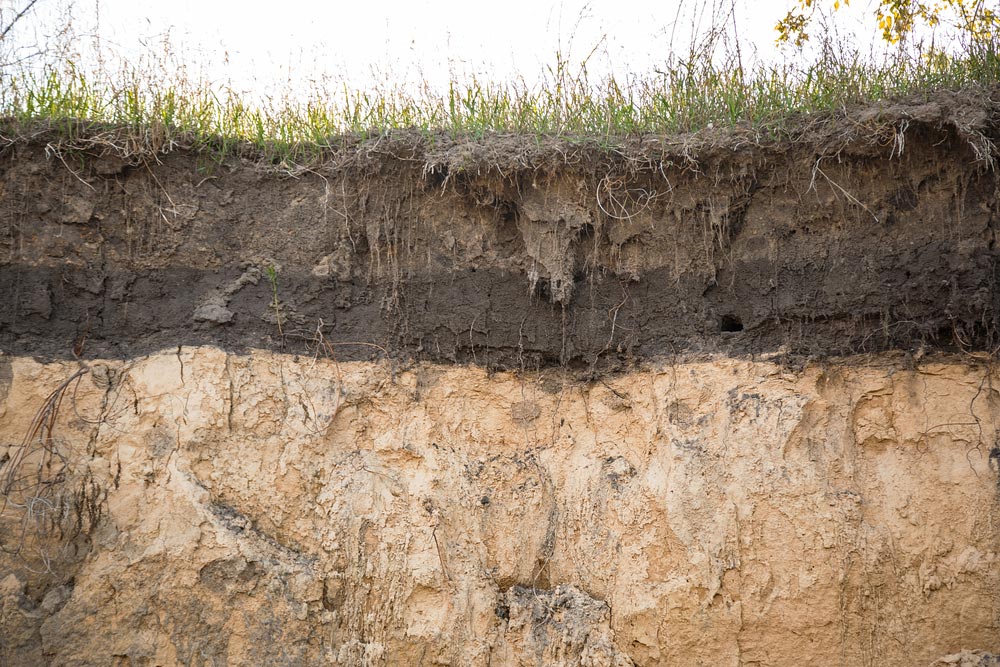Choosing the right foundation for your home is one of the most important decisions you can make during its construction. Without sturdy support, your home will have no future because it won’t be stable enough. But many homeowners don’t think about how soil type can determine whether a structure’s foundation will stay strong over the long term. Every type of soil will play a role in how well a home’s foundation will hold up against movement, because all of them will respond differently to moisture and water runoff. You need to evaluate the surrounding soil before you can start building your home, because it will help to create a strong and stable foundation.

Common Soil Types
Soil type is an important consideration when you’re building any type of structure, especially if it’s a home. Not every piece of land is suitable for construction, because the subsurface soil composition can have a huge effect on your foundation’s integrity. Soils with a great deal of clay content can cause foundations to sink and settle, because it tends to absorb water and expand when it rains. Sandier soils can cause foundations to experience excessive settlement and displacement because of their loose consistency, which makes it harder to stay compacted. Some soil types are well-suited for building, because they can provide a secure base for your home’s foundation.
Here are some of the common soil types and how they can affect your home’s foundation:
- Clay — Building on this type of soil can come with some advantages, as well as some challenges. Because of its moisture retention properties, it’s more stable than other soils. So, landslides and subsidence aren’t as likely. But it can also lead to drainage issues caused by the overlapping layers that can form during the building process. This can keep water from draining away from your foundation as easily. The increased amount of stationary moisture around the foundation can eventually cause structural instability, especially if it’s in a climate that experiences freezing temperatures.
- Rocky Soil — Building on this type of soil can come with a number of challenges. You may have a hard time finding areas that are stable enough to build a solid foundation. It may require the use of some special techniques and materials, but there are some advantages to having a home built on rocky soil. Properties that are built on or around large rocks or boulders can look very picturesque. The extra stability can also come in handy during natural disasters that homes in other locations may not be able to withstand.
- Loam — Building on this type of soil can have some advantages, as well as some challenges. Its moisture content is relatively high, which can be helpful in keeping the foundation stable. It can also minimize the need to add extra water or fix the soil while the concrete is being poured, but heavy rainfall can affect your foundation’s stability by causing erosion. It can even destabilize the structure of the building itself. Loamy soils tend to expand and contract in response to fluctuations in moisture, which is caused by their high clay content.
- Silt — Depending on the specific composition, this type of soil may compress well (which can result in fewer structural issues associated with a home’s foundation). Silty soil that’s compressible will be better able to withstand seasonal shifts in moisture levels and thermal expansion than soils that are more impervious to liquids. But their weak shear strength can cause some settling issues that may affect the safety and stability of a home’s foundation over time.
Choosing the right type of soil to build on is important if you want your foundation to be stable over the long term, which is why you need to understand what type of soil can give your home the most support. You also need to think about how different soils react to changing weather conditions. Your final decision will depend on the type of terrain surrounding the construction site, as well as on what type of structure needs to be built. Thinking about all these factors will help you decide which soil type is best for giving your home the strongest foundation, so it can last for many years.
If you’re concerned about the integrity of your foundation and are looking for one of the best places for foundation repair in Corpus Christi, be sure to reach out to Streem Foundation Repair. We have a team of experts who would be happy to speak with you!
